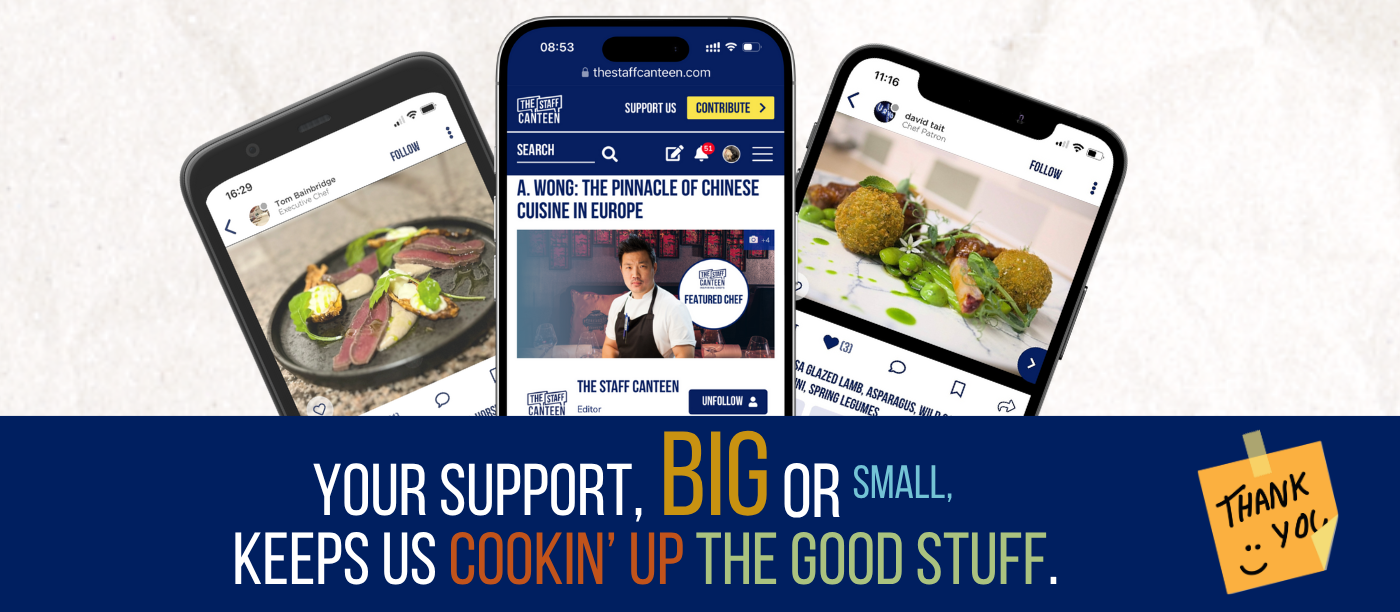Fast Life & Slow Food. A blog by Marco Carboni
Everything starts at home, as usual.
The starchy, sweet smell of made-ten-minutes-ago pasta is conquering the room like a barbaric invasion and freshly picked sage from the garden is doing the rest. Butter. And of course, the parmesan. Always the bloody parmesan.
Growing up in Italy or better in Emilia-Romagna, this has been my Sunday ritual for more than 20 years, with tortelloni, tortellini, tagliatelle, lasagne, passatelli and any kind of pasta never heard of before, being accurately crafted by my inexhaustible mum each weekend for my family gathering (and joy). When I then moved to London seven years ago, cooking was the natural fit to my need of bringing back these essential emotions.
Making my first steps in a professional kitchen, burning, dropping, chopping (my nail off!) and running all over the place filled my early days as a chef, or should I say, as a cook.
A few years later I was working in one of the best restaurants in the world, a three-Michelin-starred stressful and manic, yet magnificently exciting environment.

But I wanted to do more, and the
“good” alone without the
“clean and fair” felt to me like a Sunday roast without the gravy, so six months ago I joined Slow Food UK as its
Chef Alliance Coordinator, where I got the chance to manage a group of now more than 120 chefs (and growing), hungry to revolutionise our modern food system by using Forgotten Foods and suggesting a local, sustainable supply of ingredients.
Food in Britain has changed.
Even a few years ago it was difficult for me to find anything that wasn’t processed enough to be cautiously left on the shelf and Borough Market was perhaps one of the few places where I could find amazing, real food.
Organisations such as Slow Food have played a huge role in educating people about the principles of
good, clean and fair food and I haven’t regretted joining them to help in this important cause.
Often we don’t understand how chefs are vital in this process, as much or maybe even more than supermarkets, as they bring to the table the “best” expectation we have about food, the latest trends, the ultimate food experience – and the way in which they do it radically changes people’s opinion and inspires other chefs and food businesses around the country to make their changes and to move towards a more sustainable approach.
Chefs have the power and the responsibility to change our perception of food: going beyond the mere recipe and serving food that is not only good but also sustainable and clean is a challenge that British chefs have undertaken, in my opinion, quite successfully.

Can we do better though?
We must not forget that choosing the right supplier, keeping a seasonal menu and informing customers of what they are eating will change many people’s experience and expectations in a positive way and will lead us to a better understanding of how our food system should and must work in order to protect our heritage. Every little helps.
The aim of our Chef Alliance programme is precisely this: to raise people’s awareness throughout Chefs' choices in their restaurants, so


 But I wanted to do more, and the “good” alone without the “clean and fair” felt to me like a Sunday roast without the gravy, so six months ago I joined Slow Food UK as its
But I wanted to do more, and the “good” alone without the “clean and fair” felt to me like a Sunday roast without the gravy, so six months ago I joined Slow Food UK as its  Can we do better though?
We must not forget that choosing the right supplier, keeping a seasonal menu and informing customers of what they are eating will change many people’s experience and expectations in a positive way and will lead us to a better understanding of how our food system should and must work in order to protect our heritage. Every little helps.
The aim of our Chef Alliance programme is precisely this: to raise people’s awareness throughout Chefs' choices in their restaurants, so
Can we do better though?
We must not forget that choosing the right supplier, keeping a seasonal menu and informing customers of what they are eating will change many people’s experience and expectations in a positive way and will lead us to a better understanding of how our food system should and must work in order to protect our heritage. Every little helps.
The aim of our Chef Alliance programme is precisely this: to raise people’s awareness throughout Chefs' choices in their restaurants, so
 Forgotten Foods menus, local events, workshops and tastings, talks and Slow Food dinners were all part of this year’s schedule, with our entire Slow Food network engaging together to share what has been done and to show that preserving biodiversity not only is necessary, but also fun.
Forgotten Foods menus, local events, workshops and tastings, talks and Slow Food dinners were all part of this year’s schedule, with our entire Slow Food network engaging together to share what has been done and to show that preserving biodiversity not only is necessary, but also fun.












